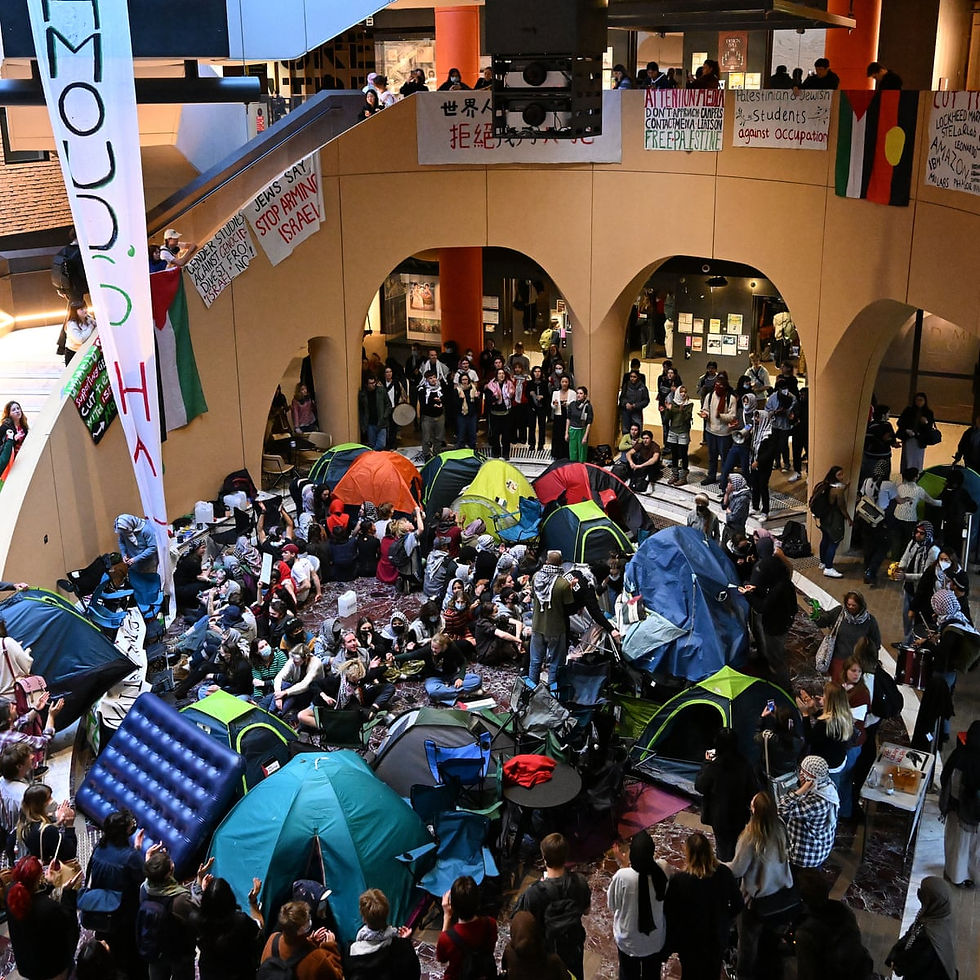Digital Surveillance Threatens Academic Freedom at University of Melbourne
- Endangered Scholars Worldwide
- Sep 8, 2025
- 3 min read

On August 20, 2025, the Office of the Victorian Information Commissioner (OVIC), an independent body tasked with regulating the usage of information by the Australian public sector, announced that they found the University of Melbourne (UoM) in violation of two of the Information Privacy Principles outlined in the Privacy and Data Protection Act 2014. UoM’s violations are based on its usage of students’ Wi-Fi location data to identify participants in a pro-Palestine protest in May 2024. The OVIC found that UoM failed to let students know that their Wi-Fi data would be used for this purpose and that the usage of this data for university investigations was not a purpose that students could have reasonably expected. A compliance notice was not issued to the university since efforts to address the violations had already started during OVIC’s investigation.
The National Union of Students and the University of Melbourne Student Union released a joint statement on August 22, 2025, condemning the university’s surveillance of its own students. The joint statement emphasized that the university’s actions set “a dangerous precedent for academic freedom, privacy, and the right to protest at universities across [Australia].”
The main reason for the investigation on UoM was their response to a pro-Palestine protest held on campus on May 15, 2024. Students started a sit-in protest in the Arts West building and later started an encampment that would last a week. During the encampment, the university threatened the protesting students with disciplinary action and police action. On May 20, 2024 that the university used Wi-Fi location data to determine the identity of 22 students that refused to vacate the building that they were occupying. In addition to using Wi-Fi and CCTV data, the university also reviewed the email accounts of 10 staff members and sent formal written warnings to three staff members for their participation in the protest.
UoM has been especially intolerant of pro-Palestine protests, ever since they started in Spring of 2024. On May 16, 2024, a day after the start of the pro-Palestine encampment, the university Vice-Chancellor announced rule changes that restricted the usage of university grounds for protests that are not peaceful, and protests that include those that are neither students nor staff at UoM. Protests persisted, however. The next year, on March 3, 2025, the university banned all indoor protests and further restricted protests that “unreasonably undermine the capacity of individuals to participate fully in the University” or those that “unreasonably disrupt activities or operations of the University or result in damage to University property.” Students found to be in violation of these rules risk suspension or expulsion among other possible sanctions. Indeed, in June 2025, two students were expelled from UoM for taking part in a pro-Palestine protest on campus, making the institution the first one in Australia to expel students over pro-Palestine protest activity.
Targeting to limit the disruptive capacity of campus protests, these rules effectively nullify their potential impact on policy change. On April 15, 2025, Human Rights Law Centre, Amnesty International, and Human Rights Watch, in a joint letter to the university, reiterated the point that disruptiveness is central to any protest, and that the vagueness of the criteria for what constitutes disruption gives too much discretion to the university and makes it impossible for students and staff to estimate in advance the risk associated with potential protest activity. The statement underlined that these protest regulations, combined with the school’s Wi-Fi Terms of Use, could have a chilling effect on academic freedom on the UoM campus.
As of April 15, 2025, the school reserved to itself the right to monitor data from its Wi-Fi network to determine the location of a person, even when there is no suspicion that they have committed any wrongdoing at all. The Chief Operating Officer of UoM, Katerina Kapobassis, also defended the university’s surveillance of its own students and staff, arguing that the university’s responsibility to ensure safety and the continuation of its teaching mission override other concerns.
Endangered Scholars Worldwide (ESW) condemns the collection, storage and usage of digital data for purposes of restricting campus protests, a fundamental aspect of academic freedom and the right to free expression of university students and staff. We urge the University of Melbourne to stop and reverse their ongoing actions towards restricting protests, whether in the form of digital repression or through outright bans on protest activity. We invite the global community to join our call.




